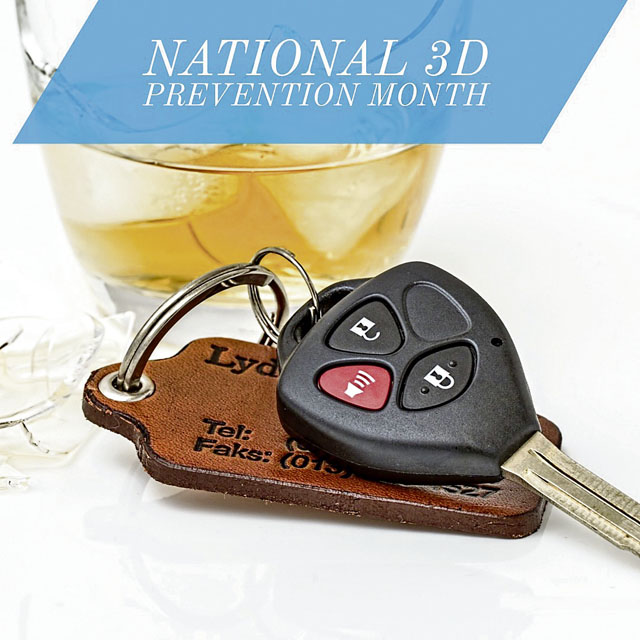
During December’s National Drunk and Drugged Driving (3D) Prevention Month, emphasis is placed on reducing the number of impaired drivers on the road to prevent loss of life. This is done through an active campaign to help educate drivers about the risks and consequences of driving while impaired.
“It is important to remind our community to avoid getting behind the wheel while impaired and prevent others from driving while impaired as well,” said Velia Bravo-Johnson, National 3D Prevention Month coordinator and intern with the Army Substance Abuse Program. “This is for our own safety and that of everyone around us.”
Although impaired driving is an issue year-round, these instances may spike during the holiday season, Bravo-Johnson said.
“During the holidays, I think people often want to relax and celebrate, and they forget to make a plan. Some people may have a few drinks, think they are fine, decide to take the chance and get behind the wheel,” she explained.
Bravo-Johnson also mentioned that when judgement becomes impaired, people may have a false sense of sobriety and make the mistake of getting behind the wheel.
Impaired driving is a crime, whether drivers are under the influence of alcohol, illegal drugs or prescription drugs – that’s why the 3D prevention campaign is committed to ensuring the safety of all drivers and passengers on the road.
In 2017, there were 10,874 fatalities in the U.S. caused by drivers with blood alcohol concentrations of .08 grams per deciliter or higher, according to the National Highway Traffic Safety Administration. Closer to home, there were 132 instances of people Driving Under the Influence in the Kaiserslautern Military Community, according to the U.S. Army Garrison Rheinland-Pfalz Directorate of Emergency Services. That’s 132 potential accidents with possible loss of life.
So what are some things people can do to mitigate impaired driving risks?
Since alcohol and drugs can impair a person mentally and physically, the first step is to recognize when someone is impaired and step in to prevent that person from getting behind the wheel, Bravo-Johnson explained.
“Remove car keys from an impaired individual if necessary. Offer to take the person home or offer him or her to stay the night. If this is not an option, call a taxi, a trusted person who is sober or as a last resort call KMC Armed Forces Against Drunk Driving,” she said.
Bravo-Johnson also advised using low-risk guidelines like – 0, 1, 2, 3, which signifies:
0. Illegal drugs / prescriptions not prescribed for you / driving after drinking / alcohol or drugs while pregnant
1. Standard drink per hour
2. Standard drinks per day – not to exceed 14 per week
3. Maximum standard drinks on any given day
“There is nothing more destructive to a person’s life, family or career than the catastrophic consequences from drunk or drugged driving,” said USAG RP Deputy Garrison Commander Dr. Kevin L. Griess. “When you drink or get high and then drive, you are weaponizing your bad decision. Your vehicle then becomes one of the most dangerous things possible. You will create a high risk of being killed, maimed or worse — killing someone else. My own father was severely disabled for decades after being struck by a drunk driver. This is not a matter of ‘if’ something will happen, it is ‘when.’ Make a better choice. Enjoy yourself. Have a ‘Plan B,’ get home safely for yourself and others.”
People who need help dealing with substance abuse and substance use disorders can contact the Army Substance Abuse Program and Substance Use Disorder Clinical Care for assistance.
ASAP/SUDCC services are located at Landstuhl Regional Medical Center, Bldg. 93761 A1, next to the emergency room. Assessments are scheduled by appointment by calling 590-5960 or 06371-9464-5960. In Baumholder, ASAP/SUDCC is located on Clinic Kaserne, Bldg. 8742, second floor in Behavioral Health. For assessments or more information, call 590-1066 or 06371-9464-1066.
Always have a plan if you choose to consume alcohol, but as a last resort, call KMC AADD for a free and safe ride home at 01525-172-3356.


